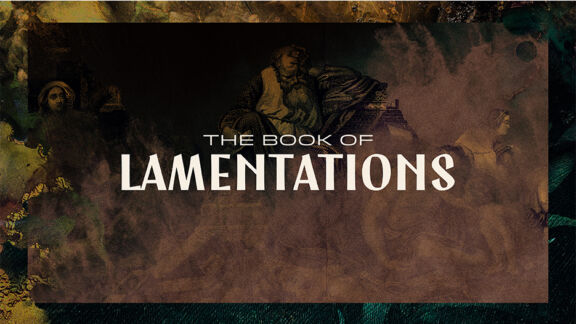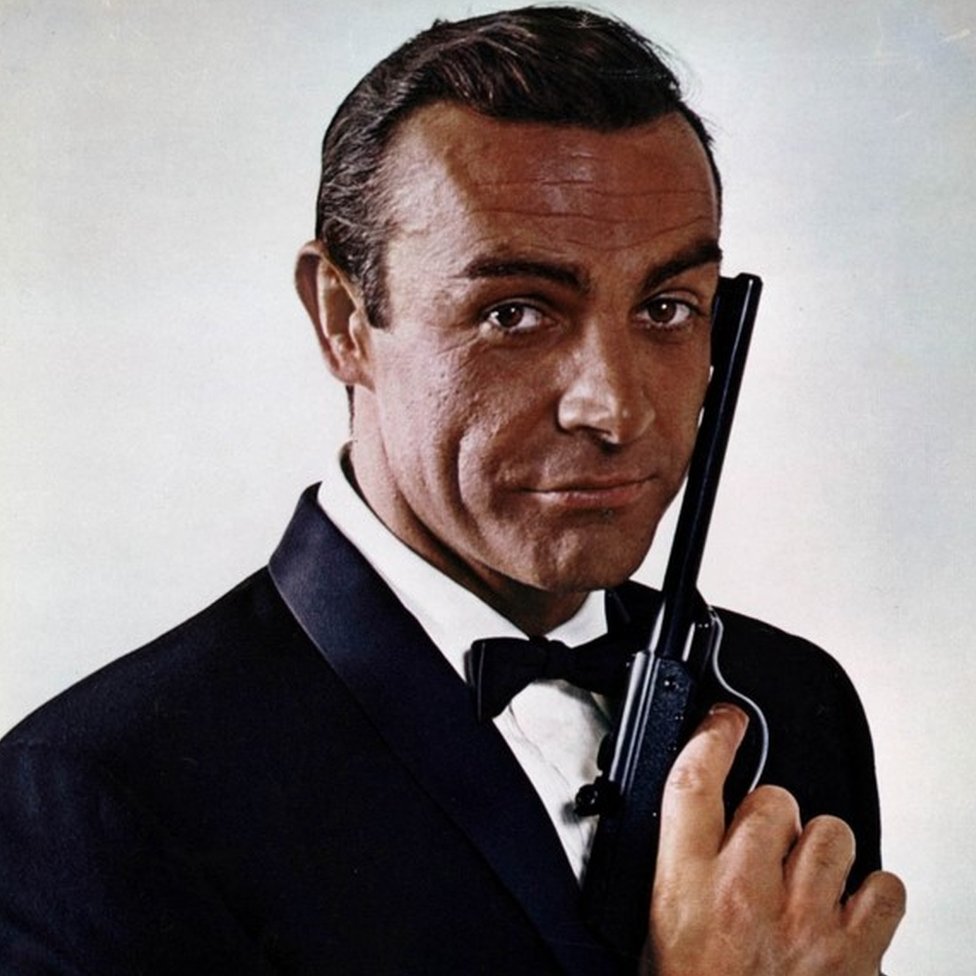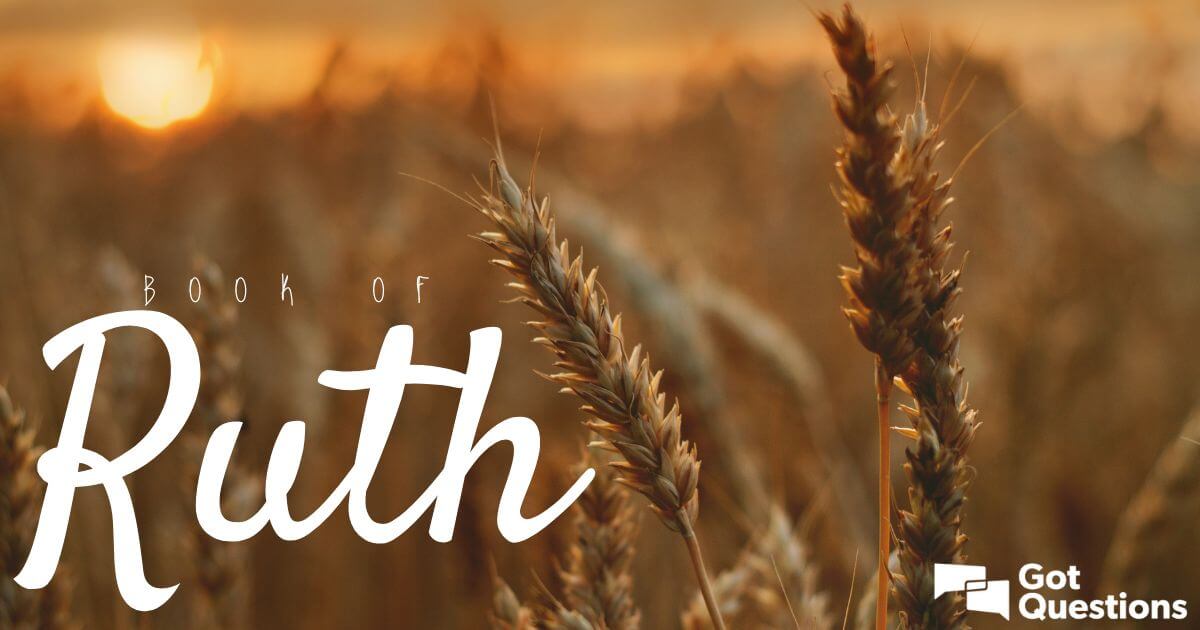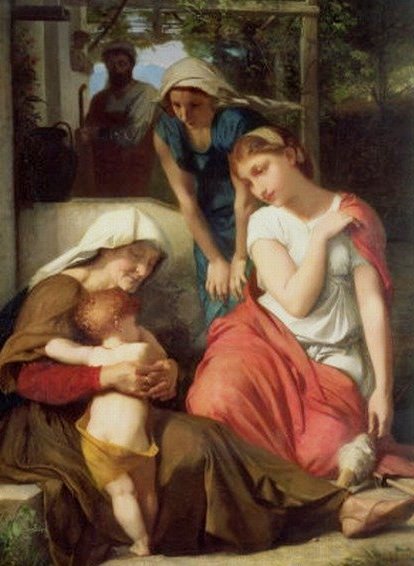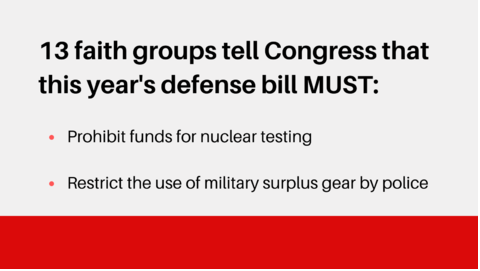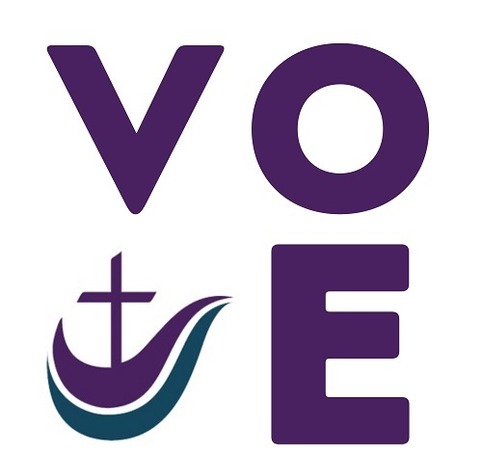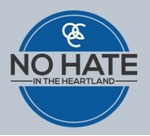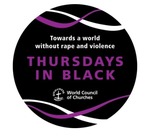
Lamentations 4-5:22 (The Message)
Lamentations 4
Waking Up with Nothing
1 Oh, oh, oh...
How gold is treated like dirt,
the finest gold thrown out with the garbage,
Priceless jewels scattered all over,
jewels loose in the gutters. 2And the people of Zion, once prized,
far surpassing their weight in gold,
Are now treated like cheap pottery,
like everyday pots and bowls mass-produced by a potter.
3Even wild jackals nurture their babies,
give them their breasts to suckle.
But my people have turned cruel to their babies,
like an ostrich in the wilderness.
4Babies have nothing to drink.
Their tongues stick to the roofs of their mouths.
Little children ask for bread
but no one gives them so much as a crust.
5People used to the finest cuisine
forage for food in the streets.
People used to the latest in fashions
pick through the trash for something to wear.
6The evil guilt of my dear people
was worse than the sin of Sodom—
The city was destroyed in a flash,
and no one around to help.
7The splendid and sacred nobles
once glowed with health.
Their bodies were robust and ruddy,
their beards like carved stone.
8But now they are smeared with soot,
unrecognizable in the street,
Their bones sticking out,
their skin dried out like old leather.
9Better to have been killed in battle
than killed by starvation.
Better to have died of battle wounds
than to slowly starve to death.
10Nice and kindly women
boiled their own children for supper.
This was the only food in town
when my dear people were broken.
11God let all his anger loose, held nothing back.
He poured out his raging wrath.
He set a fire in Zion
that burned it to the ground.
12The kings of the earth couldn't believe it.
World rulers were in shock,
Watching old enemies march in big as you please,
right through Jerusalem's gates.
13Because of the sins of her prophets
and the evil of her priests,
Who exploited good and trusting people,
robbing them of their lives,
14These prophets and priests blindly grope their way through the streets,
grimy and stained from their dirty lives,
Wasted by their wasted lives,
shuffling from fatigue, dressed in rags.
15People yell at them, "Get out of here, dirty old men!
Get lost, don't touch us, don't infect us!"
They have to leave town. They wander off.
Nobody wants them to stay here.
Everyone knows, wherever they wander,
that they've been kicked out of their own hometown.
16God himself scattered them.
No longer does he look out for them.
He has nothing to do with the priests;
he cares nothing for the elders.
17We watched and watched,
wore our eyes out looking for help. And nothing.
We mounted our lookouts and looked
for the help that never showed up.
18They tracked us down, those hunters.
It wasn't safe to go out in the street.
Our end was near, our days numbered.
We were doomed.
19They came after us faster than eagles in flight,
pressed us hard in the mountains, ambushed us in the desert.
20Our king, our life's breath, the anointed of God,
was caught in their traps—
Our king under whose protection
we always said we'd live.
21Celebrate while you can, O Edom!
Live it up in Uz!
For it won't be long before you drink this cup, too.
You'll find out what it's like to drink God's wrath,
Get drunk on God's wrath
and wake up with nothing, stripped naked.
22And that's it for you, Zion. The punishment's complete.
You won't have to go through this exile again.
But Edom, your time is coming:
He'll punish your evil life, put all your sins on display.
How gold is treated like dirt,
the finest gold thrown out with the garbage,
Priceless jewels scattered all over,
jewels loose in the gutters. 2And the people of Zion, once prized,
far surpassing their weight in gold,
Are now treated like cheap pottery,
like everyday pots and bowls mass-produced by a potter.
3Even wild jackals nurture their babies,
give them their breasts to suckle.
But my people have turned cruel to their babies,
like an ostrich in the wilderness.
4Babies have nothing to drink.
Their tongues stick to the roofs of their mouths.
Little children ask for bread
but no one gives them so much as a crust.
5People used to the finest cuisine
forage for food in the streets.
People used to the latest in fashions
pick through the trash for something to wear.
6The evil guilt of my dear people
was worse than the sin of Sodom—
The city was destroyed in a flash,
and no one around to help.
7The splendid and sacred nobles
once glowed with health.
Their bodies were robust and ruddy,
their beards like carved stone.
8But now they are smeared with soot,
unrecognizable in the street,
Their bones sticking out,
their skin dried out like old leather.
9Better to have been killed in battle
than killed by starvation.
Better to have died of battle wounds
than to slowly starve to death.
10Nice and kindly women
boiled their own children for supper.
This was the only food in town
when my dear people were broken.
11God let all his anger loose, held nothing back.
He poured out his raging wrath.
He set a fire in Zion
that burned it to the ground.
12The kings of the earth couldn't believe it.
World rulers were in shock,
Watching old enemies march in big as you please,
right through Jerusalem's gates.
13Because of the sins of her prophets
and the evil of her priests,
Who exploited good and trusting people,
robbing them of their lives,
14These prophets and priests blindly grope their way through the streets,
grimy and stained from their dirty lives,
Wasted by their wasted lives,
shuffling from fatigue, dressed in rags.
15People yell at them, "Get out of here, dirty old men!
Get lost, don't touch us, don't infect us!"
They have to leave town. They wander off.
Nobody wants them to stay here.
Everyone knows, wherever they wander,
that they've been kicked out of their own hometown.
16God himself scattered them.
No longer does he look out for them.
He has nothing to do with the priests;
he cares nothing for the elders.
17We watched and watched,
wore our eyes out looking for help. And nothing.
We mounted our lookouts and looked
for the help that never showed up.
18They tracked us down, those hunters.
It wasn't safe to go out in the street.
Our end was near, our days numbered.
We were doomed.
19They came after us faster than eagles in flight,
pressed us hard in the mountains, ambushed us in the desert.
20Our king, our life's breath, the anointed of God,
was caught in their traps—
Our king under whose protection
we always said we'd live.
21Celebrate while you can, O Edom!
Live it up in Uz!
For it won't be long before you drink this cup, too.
You'll find out what it's like to drink God's wrath,
Get drunk on God's wrath
and wake up with nothing, stripped naked.
22And that's it for you, Zion. The punishment's complete.
You won't have to go through this exile again.
But Edom, your time is coming:
He'll punish your evil life, put all your sins on display.
Lamentations 5
Give Us a Fresh Start
1-22 "Remember, God, all we've been through. Study our plight, the black mark we've made in history.
Our precious land has been given to outsiders,
our homes to strangers.
Orphans we are, not a father in sight,
and our mothers no better than widows.
We have to pay to drink our own water.
Even our firewood comes at a price.
We're nothing but slaves, bullied and bowed,
worn out and without any rest.
We sold ourselves to Assyria and Egypt
just to get something to eat.
Our parents sinned and are no more,
and now we're paying for the wrongs they did.
Slaves rule over us;
there's no escape from their grip.
We risk our lives to gather food
in the bandit-infested desert.
Our skin has turned black as an oven,
dried out like old leather from the famine.
Our wives were raped in the streets in Zion,
and our virgins in the cities of Judah.
They hanged our princes by their hands,
dishonored our elders.
Strapping young men were put to women's work,
mere boys forced to do men's work.
The city gate is empty of wise elders.
Music from the young is heard no more.
All the joy is gone from our hearts.
Our dances have turned into dirges.
The crown of glory has toppled from our head.
Woe! Woe! Would that we'd never sinned!
Because of all this we're heartsick;
we can't see through the tears.
On Mount Zion, wrecked and ruined,
jackals pace and prowl.
And yet, God, you're sovereign still,
your throne intact and eternal.
So why do you keep forgetting us?
Why dump us and leave us like this?
Bring us back to you, God—we're ready to come back.
Give us a fresh start.
As it is, you've cruelly disowned us.
You've been so very angry with us."
Our precious land has been given to outsiders,
our homes to strangers.
Orphans we are, not a father in sight,
and our mothers no better than widows.
We have to pay to drink our own water.
Even our firewood comes at a price.
We're nothing but slaves, bullied and bowed,
worn out and without any rest.
We sold ourselves to Assyria and Egypt
just to get something to eat.
Our parents sinned and are no more,
and now we're paying for the wrongs they did.
Slaves rule over us;
there's no escape from their grip.
We risk our lives to gather food
in the bandit-infested desert.
Our skin has turned black as an oven,
dried out like old leather from the famine.
Our wives were raped in the streets in Zion,
and our virgins in the cities of Judah.
They hanged our princes by their hands,
dishonored our elders.
Strapping young men were put to women's work,
mere boys forced to do men's work.
The city gate is empty of wise elders.
Music from the young is heard no more.
All the joy is gone from our hearts.
Our dances have turned into dirges.
The crown of glory has toppled from our head.
Woe! Woe! Would that we'd never sinned!
Because of all this we're heartsick;
we can't see through the tears.
On Mount Zion, wrecked and ruined,
jackals pace and prowl.
And yet, God, you're sovereign still,
your throne intact and eternal.
So why do you keep forgetting us?
Why dump us and leave us like this?
Bring us back to you, God—we're ready to come back.
Give us a fresh start.
As it is, you've cruelly disowned us.
You've been so very angry with us."
Hebrews 2:1-18 (The Message)
Hebrews 2
The Salvation Pioneer
5-9God didn't put angels in charge of this business of salvation that we're dealing with here. It says in Scripture,What is man and woman that you bother with them;
why take a second look their way?
You made them not quite as high as angels,
bright with Eden's dawn light;
Then you put them in charge
of your entire handcrafted world.
When God put them in charge of everything, nothing was excluded. But we don't see it yet, don't see everything under human jurisdiction. What we do see is Jesus, made "not quite as high as angels," and then, through the experience of death, crowned so much higher than any angel, with a glory "bright with Eden's dawn light." In that death, by God's grace, he fully experienced death in every person's place. 10-13It makes good sense that the God who got everything started and keeps everything going now completes the work by making the Salvation Pioneer perfect through suffering as he leads all these people to glory. Since the One who saves and those who are saved have a common origin, Jesus doesn't hesitate to treat them as family, saying,
I'll tell my good friends, my brothers and sisters, all I know
about you;
I'll join them in worship and praise to you.
Again, he puts himself in the same family circle when he says,
Even I live by placing my trust in God.
And yet again,
I'm here with the children God gave me.
14-15Since the children are made of flesh and blood, it's logical that the Savior took on flesh and blood in order to rescue them by his death. By embracing death, taking it into himself, he destroyed the Devil's hold on death and freed all who cower through life, scared to death of death.
16-18It's obvious, of course, that he didn't go to all this trouble for angels. It was for people like us, children of Abraham. That's why he had to enter into every detail of human life. Then, when he came before God as high priest to get rid of the people's sins, he would have already experienced it all himself—all the pain, all the testing—and would be able to help where help was needed.
Psalm 103:1-22 (The Message)
Psalm 103
A David Psalm
1-2 O my soul, bless God. From head to toe, I'll bless his holy name!
O my soul, bless God,
don't forget a single blessing!
3-5 He forgives your sins—every one.
He heals your diseases—every one.
He redeems you from hell—saves your life!
He crowns you with love and mercy—a paradise crown.
He wraps you in goodness—beauty eternal.
He renews your youth—you're always young in his presence.
6-18 God makes everything come out right;
he puts victims back on their feet.
He showed Moses how he went about his work,
opened up his plans to all Israel.
God is sheer mercy and grace;
not easily angered, he's rich in love.
He doesn't endlessly nag and scold,
nor hold grudges forever.
He doesn't treat us as our sins deserve,
nor pay us back in full for our wrongs.
As high as heaven is over the earth,
so strong is his love to those who fear him.
And as far as sunrise is from sunset,
he has separated us from our sins.
As parents feel for their children,
God feels for those who fear him.
He knows us inside and out,
keeps in mind that we're made of mud.
Men and women don't live very long;
like wildflowers they spring up and blossom,
But a storm snuffs them out just as quickly,
leaving nothing to show they were here.
God's love, though, is ever and always,
eternally present to all who fear him,
Making everything right for them and their children
as they follow his Covenant ways
and remember to do whatever he said.
19-22 God has set his throne in heaven;
he rules over us all. He's the King!
So bless God, you angels,
ready and able to fly at his bidding,
quick to hear and do what he says.
Bless God, all you armies of angels,
alert to respond to whatever he wills.
Bless God, all creatures, wherever you are—
everything and everyone made by God. And you, O my soul, bless God!
O my soul, bless God,
don't forget a single blessing!
3-5 He forgives your sins—every one.
He heals your diseases—every one.
He redeems you from hell—saves your life!
He crowns you with love and mercy—a paradise crown.
He wraps you in goodness—beauty eternal.
He renews your youth—you're always young in his presence.
6-18 God makes everything come out right;
he puts victims back on their feet.
He showed Moses how he went about his work,
opened up his plans to all Israel.
God is sheer mercy and grace;
not easily angered, he's rich in love.
He doesn't endlessly nag and scold,
nor hold grudges forever.
He doesn't treat us as our sins deserve,
nor pay us back in full for our wrongs.
As high as heaven is over the earth,
so strong is his love to those who fear him.
And as far as sunrise is from sunset,
he has separated us from our sins.
As parents feel for their children,
God feels for those who fear him.
He knows us inside and out,
keeps in mind that we're made of mud.
Men and women don't live very long;
like wildflowers they spring up and blossom,
But a storm snuffs them out just as quickly,
leaving nothing to show they were here.
God's love, though, is ever and always,
eternally present to all who fear him,
Making everything right for them and their children
as they follow his Covenant ways
and remember to do whatever he said.
19-22 God has set his throne in heaven;
he rules over us all. He's the King!
So bless God, you angels,
ready and able to fly at his bidding,
quick to hear and do what he says.
Bless God, all you armies of angels,
alert to respond to whatever he wills.
Bless God, all creatures, wherever you are—
everything and everyone made by God. And you, O my soul, bless God!

Proverbs 26:23 (The Message)
23 Smooth talk from an evil heart
is like glaze on cracked pottery.
23 Smooth talk from an evil heart
is like glaze on cracked pottery.

